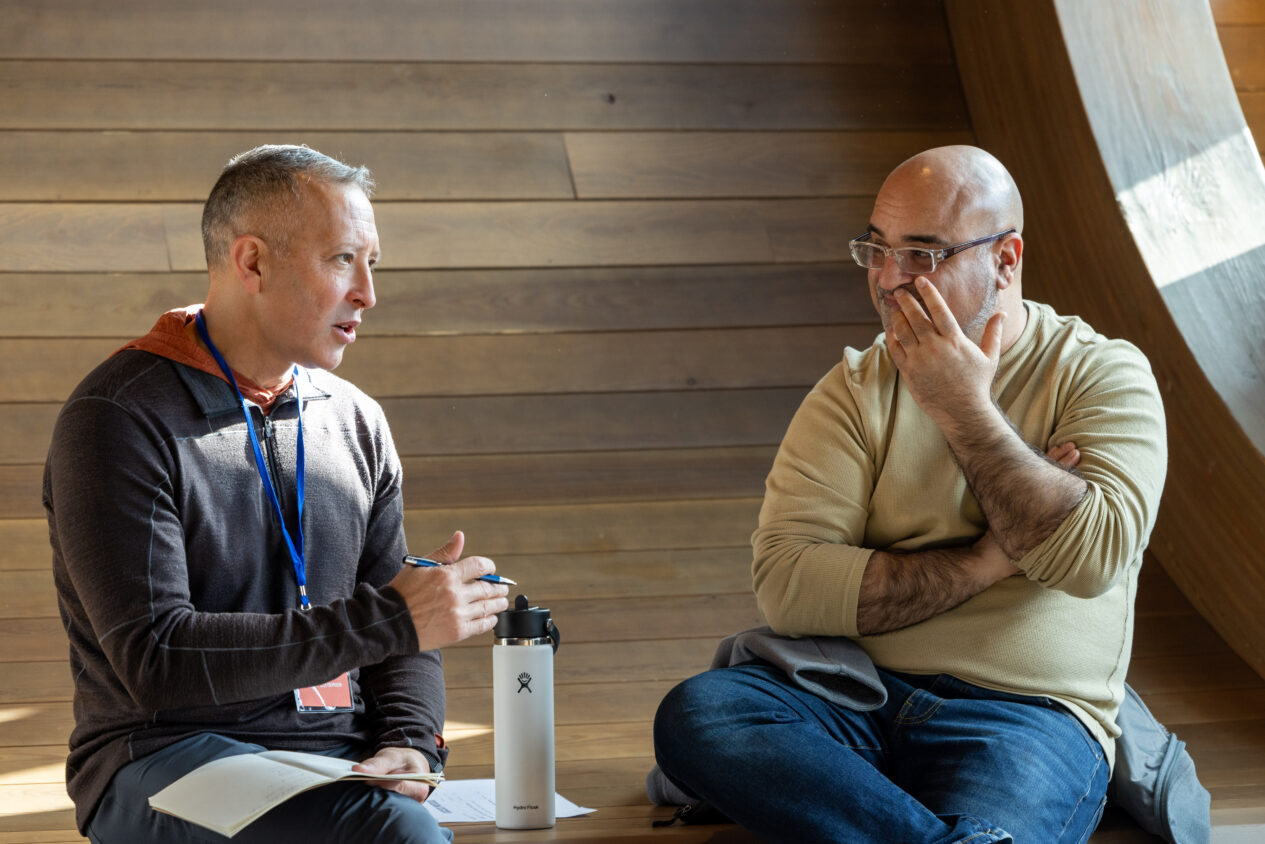Lessons from Learner-Centered Leadership Lab Cohort 4

Last year, 12 superintendents from around the country came together to form the fourth national cohort of the Learner-Centered Leadership Lab (LCLL). We formed the largest LCLL national lab cohort to date, bringing together our unique perspectives. With systems spanning from across the entire United States, covering from California to Massachusetts, and extending from Minnesota to Louisiana, our cohort embodied a rich mixture of system contexts, encompassing bustling urban hubs and serene rural communities alike. What bound us together was a steadfast belief in the transformative potential of learner-centered systems, driving us to reimagine and reshape our school systems for the better.
The Learner-Centered Leadership Lab has been a transformative space where we pause to reflect, revitalize our energies, and connect our core values with the work we lead within our systems. Our time was dedicated to shaping and clarifying our personal visions of what learner-centered systems could look like in our communities and diving into problems of practice. We set out to collaboratively answer the central question: How do I deploy and evolve my leadership to address the challenge I face in transforming my system (so all learners have extraordinary and equitable experiences and outcomes)?
Our focus was on understanding how each of us applied our leadership skills to tackle specific challenges as we worked to adopt a more learner-centered approach to leadership. Each of us identified a big issue affecting our students, called a “System Leadership Challenge.” This challenge served as a foundation for continuous reflection and action, guiding us in exploring ways to shift our systems towards being more learner-centered. By reflecting about the central question during each session, we observed the evolution of our leadership as we tackled these challenges.
Strategies for Addressing System Transformation Challenges
Here are our leading strategies for how we deployed and evolved our leadership to address the challenges we face in transforming our systems, so all learners have extraordinary and equitable experiences and outcomes:
1. Fully Embrace Holistic Transformation
First, we recognized the need to fully embrace holistic transformation, blurring the boundaries between personal and professional growth. Through the LCLL, we’ve learned that learner-centered leaders must prioritize self-reflection, seek support from peers, gather feedback from those we serve, and prioritize self-care to sustainably serve our systems and avoid burnout. Recognizing the interconnectedness of the personal and professional self has enhanced our capacity as leaders to positively impact those we serve.
“The Lab and the cohort has really pushed me probably more personally in my leadership than [professionally] in my leadership. Learners will benefit most from my growth…”
—Michael Thomas
2. More Intentional Planning and Decision-Making
This involved reflecting on individual and system practices to inform strategic planning and adopting a reflective stance to understand a situation before acting.
“Being more deliberate [in my leadership] is important to me – I need to slow the work down and reflectively plan before acting. The pace [of the role] often consumes me and it becomes difficult to shift from being reactionary to being precise and intentional about my actions…I want to spend more time in reflection and planning – I need to find the time to embrace being alone to strategically plan pivotal [and] transformative [changes] “
—Stephen Zrike
3. Empower Student Voice to Drive the Transformation Process
By spending more time with students, listening to their perspectives, and honoring their expertise as learners in our systems, we worked to bridge relational gaps between students and adults to include their voice in key decisions and ensure we are putting learners’ needs first.
“I am continuing to build student voice in a way that has not been done in this district in the past. The needs of students are becoming more central to the work than the history of adult action.”
—Margaret Crespo
4. Cultivate Systems-Wide Conviction for Change
This involved developing a shared vision for success, prioritizing continuous learning over mere compliance, and modeling the desired behaviors within the system for others to emulate. Additionally, we encouraged adults in our systems to share responsibility for bringing the community’s learner-centered vision to life.
“Getting [adults] to fully engage, to generate excitement about the possibility of transformation, and to come to the table and provide insight is necessary.”
—Shawnterra Moore
The LCLL has provided us with a transformative space to reflect, revitalize, and align our core values with our system leadership work. Through intentional planning, empowering student voice, and cultivating systems-wide conviction, we are driving transformation towards extraordinary and equitable experiences for all learners in our communities.
To hear more in-depth reflections from some of our participants, watch this video featuring their insights.
Transcend supports communities to create and spread extraordinary, equitable learning environments.

